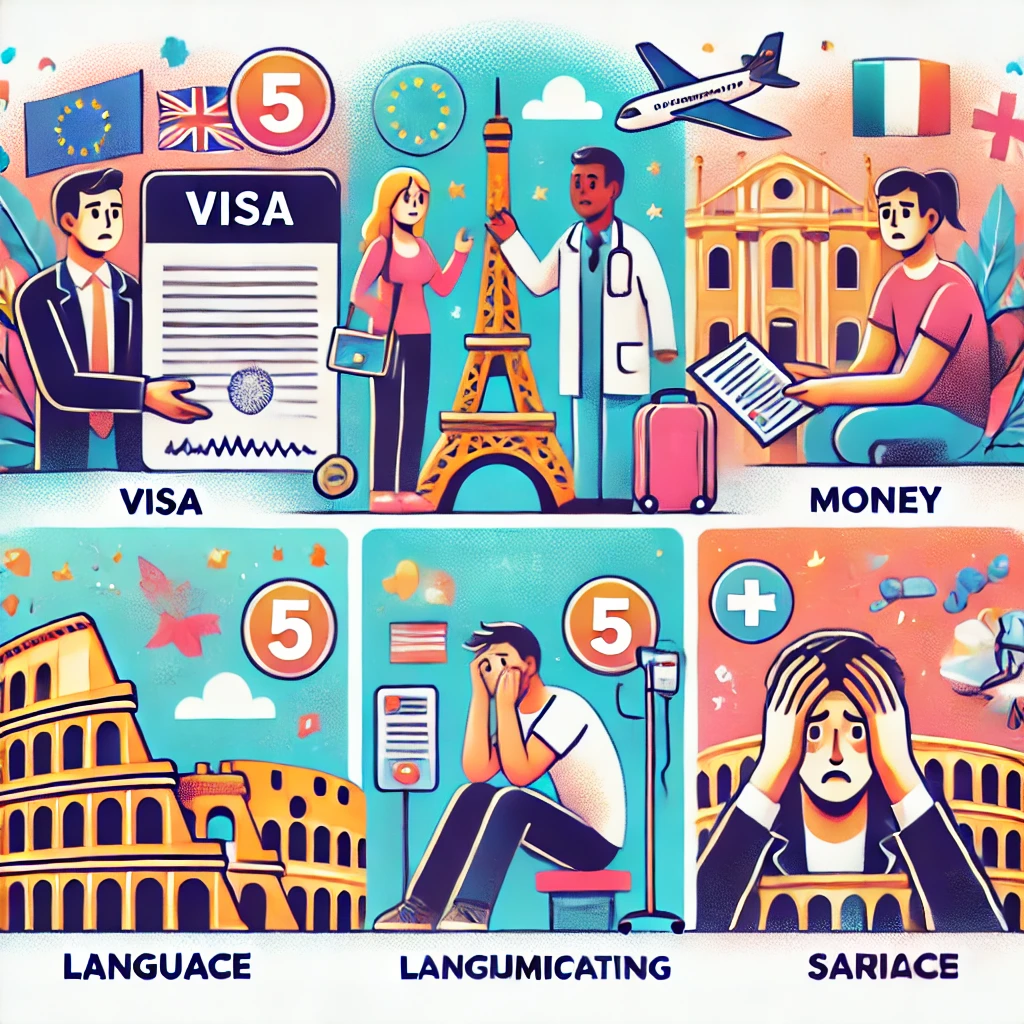
Relocating to a new country in Europe can be an exciting yet daunting adventure. With stunning landscapes, rich history, and cultural diversity, Europe offers endless opportunities for exploration and growth. However, moving to a foreign country also comes with challenges, and some common mistakes can complicate the process. Here are the top five errors people make when relocating to another European country and tips to avoid them.
1. Underestimating Visa and Residency Requirements
One of the biggest mistakes individuals make is not fully understanding the visa or residency requirements for their destination country. Europe consists of numerous countries with varying rules, even within the Schengen Area. Assuming that a tourist visa is sufficient for a permanent move is a common misconception.
How to Avoid This Mistake
- Research the specific visa types and residency permits available for your situation, such as work, student, or family reunification visas.
- Start the application process early to allow time for document gathering and processing delays.
- Seek advice from a migration expert or the embassy of your destination country for clarification.
Pro Tip: Ensure your passport has sufficient validity, as some countries require at least six months beyond your planned stay.
2. Failing to Budget Realistically
Moving abroad can be expensive, and many people underestimate the costs associated with relocating to Europe. Beyond transportation and accommodation, there are hidden expenses like customs duties, currency exchange fees, and setting up utilities.
How to Avoid This Mistake
- Create a detailed budget that includes moving costs, initial living expenses, and emergency funds.
- Research the cost of living in your destination city, as it can vary significantly within Europe.
- Take into account ongoing expenses, such as health insurance and public transportation.
Pro Tip: Use online cost-of-living calculators to estimate expenses in your new city.
3. Overlooking Cultural Differences and Language Barriers
Cultural nuances and language can become major obstacles for newcomers. Many assume that English will suffice everywhere in Europe, only to find that local languages are often essential for day-to-day life. Misunderstanding local customs can also lead to awkward situations.
How to Avoid This Mistake
- Learn the basics of the local language before you arrive. Apps like Duolingo or Rosetta Stone can help.
- Read up on cultural norms, etiquette, and traditions to better understand your new environment.
- Be open-minded and patient when adapting to cultural differences.
Pro Tip: Join local groups or classes to practice the language and meet new people.
4. Ignoring Healthcare and Insurance Needs
Many people neglect to consider their healthcare needs when moving to Europe. Depending on the country, healthcare systems can vary from private to public models. Assuming that your current health insurance will automatically cover you abroad is a mistake.
How to Avoid This Mistake
- Check whether your destination country requires you to purchase local health insurance.
- Research how the healthcare system operates in your new country and whether you qualify for public healthcare.
- Carry a supply of essential medications and obtain prescriptions that are valid internationally.
Pro Tip: Consider purchasing international health insurance to cover the transition period.
5. Not Preparing for Legal and Tax Implications
Each European country has unique tax laws and legal systems. Failure to understand these can lead to unexpected liabilities, fines, or difficulties in accessing services like banking or employment.
How to Avoid This Mistake
- Research your tax obligations, especially if your income is sourced from multiple countries.
- Update your legal documents, such as wills or contracts, to comply with local regulations.
- Consult with a tax advisor or lawyer specializing in expat issues.
Pro Tip: Some countries have bilateral agreements that prevent double taxation. Familiarize yourself with these arrangements if applicable.

FAQs About Moving to Another Country in Europe
Q: Can I use my home country’s driving license in Europe?
A: It depends on the country. Some European nations allow short-term use of foreign driving licenses, while others require an International Driving Permit (IDP) or conversion to a local license.
Q: Do I need to open a local bank account in Europe?
A: It’s not always mandatory, but having a local account can simplify payments and reduce currency conversion fees.
Q: How can I find accommodation before arriving?
A: Online platforms like Airbnb, Booking.com, or expat housing websites can help you secure temporary housing until you find a permanent place.
Additional Tips for a Smooth Move
- Stay Organized: Keep all essential documents in one place, such as passports, visas, and proof of employment.
- Network Early: Connect with expat communities through forums or social media to gather tips and support.
- Visit First: If possible, visit the destination city beforehand to explore neighborhoods and familiarize yourself with the area.
Moving to another country in Europe can be a rewarding experience with the right preparation. By avoiding these common mistakes, you’ll set the stage for a successful transition and enjoy the adventure of living abroad.

